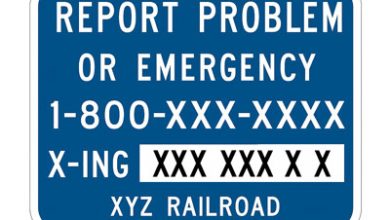Understand Comprehensive Car Insurance Coverage

What Does Comprehensive Car Insurance Cover?
 Comprehensive car insurance is an essential type of coverage that many drivers opt for to help protect themselves from a wide range of unforeseen events. Unlike standard liability insurance, which primarily covers damages to other vehicles and bodily injuries in an accident where you are at fault, comprehensive car insurance extends its safety net much further. This type of policy typically covers damages to your vehicle resulting from incidents such as theft, vandalism, natural disasters, and collisions with animals. *Refer to your policy for details on applicable coverages.. With the unpredictable nature of the world we live in, having comprehensive coverage can provide peace of mind.
Comprehensive car insurance is an essential type of coverage that many drivers opt for to help protect themselves from a wide range of unforeseen events. Unlike standard liability insurance, which primarily covers damages to other vehicles and bodily injuries in an accident where you are at fault, comprehensive car insurance extends its safety net much further. This type of policy typically covers damages to your vehicle resulting from incidents such as theft, vandalism, natural disasters, and collisions with animals. *Refer to your policy for details on applicable coverages.. With the unpredictable nature of the world we live in, having comprehensive coverage can provide peace of mind.
One of the most significant advantages of comprehensive car insurance is its ability to safeguard your vehicle against non-collision-related damages. For instance, if a severe storm causes a tree branch to fall on your car, comprehensive insurance can help cover the repair costs. Similarly, if your vehicle is stolen or damaged during a break-in, this coverage can help alleviate some of the financial burden you would otherwise face. This protection is particularly vital for those who live in areas prone to environmental hazards or high crime rates, where the risk of such incidents is elevated.
Another key aspect of comprehensive car insurance is its potential for providing financial support when dealing with wildlife accidents. Drivers often encounter animals on the road, leading to collisions that can cause significant damage to vehicles. Comprehensive insurance can help cover repairs from these unfortunate incidents, ensuring that you are not left to shoulder the entire cost of repairs on your own.
Lastly, while comprehensive car insurance is typically paired with collision insurance to create a comprehensive coverage package, it’s important to note that it does not cover every scenario. For example, damages incurred in a standard car accident with another vehicle are generally handled under collision coverage. Therefore, it is crucial for drivers to evaluate their individual needs and potential risks when choosing the right coverage levels. Overall, comprehensive car insurance serves as a robust defense against a myriad of unexpected events, helping to keep you and your vehicle protected on the road.
Why Comprehensive Car Insurance is Essential for Vehicle Protection
Key Benefits of Opting for Comprehensive Car Insurance
Choosing comprehensive car insurance over other types of coverage can offer numerous benefits tailored to meet the needs of any vehicle owner. One of the primary advantages is the peace of mind that comes with knowing that a wide range of potential risks is covered. Unlike basic liability insurance, comprehensive car insurance helps protect against a broad array of incidents, including theft, vandalism, and natural disasters such as floods or hailstorms. This extensive coverage ensures that drivers won’t face financial burdens arising from unexpected events that could otherwise lead to significant repair costs or loss of their vehicle.
Another key benefit of opting for comprehensive car insurance is the protection it provides against non-collision incidents. Many drivers underestimate the value of having coverage for events beyond accidents, such as damage from hitting an animal or debris on the road. Additionally, with comprehensive coverage, policyholders may receive reimbursement for personal items stolen from their car, offering an extra layer of security. This extensive protection not only helps safeguards your vehicle but also covers personal belongings, reflecting a more holistic approach to insurance.
Comprehensive car insurance often results in lower out-of-pocket expenses during repairs or replacements. In the event of a covered loss, drivers typically benefit from a streamlined claims process and potentially higher payout limits, depending on their policy. Furthermore, having such comprehensive protection can even help in negotiations with lenders or dealerships, as it demonstrates financial responsibility and a commitment to safeguarding one’s assets. This can be particularly beneficial for those with financing or leasing agreements, where the value of their vehicle is paramount.
Finally, while the premium for comprehensive car insurance may be higher than that of basic coverage, many drivers find it a worthwhile investment in the long run. Insurance providers often offer discounts for bundling policies or maintaining a clean driving record, which can help reduce costs. Ultimately, the security and breadth of protection that comprehensive car insurance offers can provide significant reassurance to drivers, ensuring that they are well-prepared for whatever challenges the road may present. As such, for both peace of mind and financial security, comprehensive car insurance is increasingly recognized as an essential choice for conscientious vehicle owners.
Factors to Consider When Selecting Comprehensive Car Insurance Coverage
When it comes to selecting comprehensive car insurance coverage, there are several critical factors that individuals should carefully consider. As mentioned earlier, comprehensive car insurance is designed to help protect your vehicle from a wide variety of risks beyond just accidents, including theft, vandalism, natural disasters, and animal strikes. Understanding the extent of coverage offered and how it aligns with your needs is essential in making an informed decision.
One of the primary factors to consider is the value of your vehicle. Newer and more expensive cars may warrant a comprehensive policy due to their higher replacement costs. Conversely, if you own an older vehicle, you might evaluate whether the cost of comprehensive coverage justifies the vehicle’s value. Additionally, consider your geographical location; if you live in an area prone to extreme weather events or high rates of theft, comprehensive car insurance can provide peace of mind against these specific risks.
Another important aspect is your driving habits and lifestyle. Frequent travelers or those who often park in less secure locations may benefit more from robust comprehensive coverage compared to someone who predominantly drives in safer environments. It’s also worthwhile to explore the deductible options associated with your comprehensive coverage. A higher deductible typically means lower premium payments, but it’s crucial to ensure you can afford the deductible in the event of a claim.
By taking the time to evaluate these factors, you can select a policy that not only fits your financial situation but also provides optimal protection for your vehicle.
If you have any questions, call or contact Robins Insurance today.
Disclaimer: The information provided in this blog post is intended for general knowledge and informational purposes only, and does not constitute professional insurance advice. The content is not exhaustive and does not cover all potential situations. It is essential to review your specific insurance policy and discuss your individual circumstances with your insurance agent or broker. We strongly recommend that you consult with a qualified insurance professional to address your insurance needs and questions.
Source link



